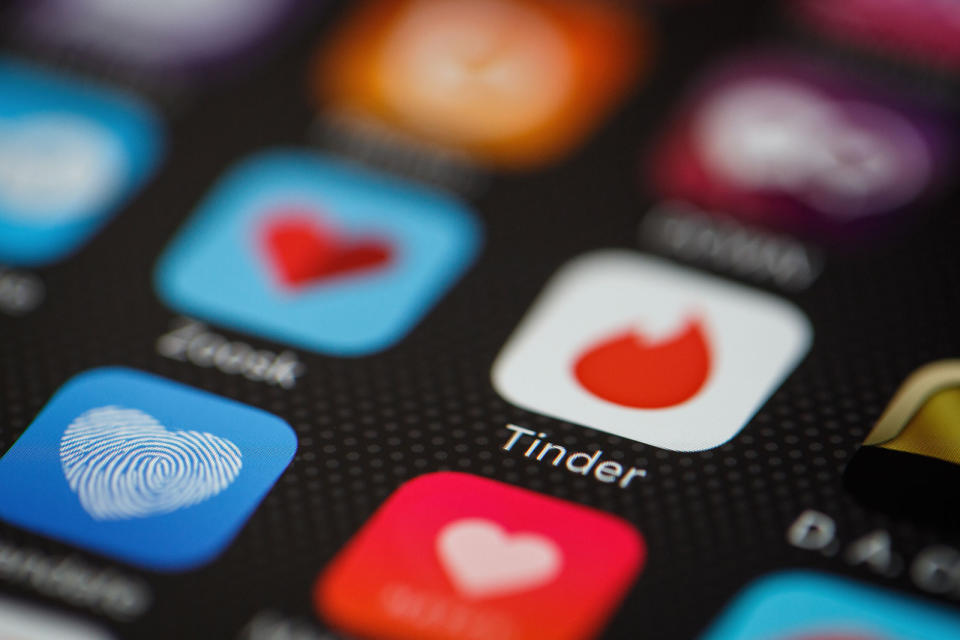How Match got away with buying 25 dating sites — and counting

Match Group (MTCH) continues to swallow up the online dating market.
Last week, Match Group announced it had purchased a 51% controlling stake in the dating app Hinge, representing the latest in a streak of moves to shore up its position as the dominant player in online dating globally. Match Group has the right to acquire the remaining shares of Hinge within the next 12 months.
Match Group’s dominance in the online dating market and aggressive acquisition strategy raises the question: Why hasn’t the company raised antitrust concerns?
Indeed, the Dallas, Texas-based internet company already owns more than 45 dating businesses, with over 25 of those businesses acquired since Match Group was incorporated in 2009, including OkCupid, PlentyofFish, the social platform Twoo, the European online dating service Meetic, and the Japanese dating services developer Eureka.
“We’re highly acquisitive, and we’re always talking to companies,” Match Group CEO Mandy Ginsberg told Yahoo Finance during an interview in early June. “I mean like they should: if you want to sell, you should be talking to us.”
The company is also embroiled in litigation with dating app, Bumble, which alleges Match Group launched a lawsuit against it in part to help drive down the price of a possible acquisition — a claim Match Group disputes.
Not a huge market share
Last year, Match Group generated almost $1.3 billion in revenues, accounting for roughly one-third of the dating market’s $4 billion in global revenues in 2017, according to Aegis Capital Managing Director Victor Anthony.
It’s possible the U.S. Federal Trade Commission has deemed Match Group’s spate of acquisitions over the years insufficient to warrant an antitrust case. Although Match Group commands nearly one-third of the online dating market worldwide, that market share, which was calculated by an independent source in this case, isn’t actually huge, contends Christopher Sagers, a professor at the Cleveland-Marshall College of Law, who specializes in antitrust law.
Amazon, for example, accounted for an estimated 44% of e-commerce sales in 2017 and has yet to face a lawsuit from federal antitrust regulators.
“Monopolization is just hard to prove,” Sagers contends. “That’s the main reason the government hasn’t come after Amazon. … There’s a pretty different reason the government hasn’t come after Match Group. While this is a lot of acquisitions, Match Group is still small.”
One method the government uses to help determine whether a particular merger has antitrust issues is the Herfindahl-Hirschman Index, or HHI, which is a common measure for calculating a particular market’s competitiveness, ranging from 0 to 10,000. The higher the HHI, the higher the market share. If there were only one company in a particular market, for instance, that company would have an HHI of 10,000, meaning it had 100% market share and easily constituted a monopoly.
It’s unconfirmed, although likely, the government has calculated Match Group’s HHI in the past. However Sagers contends Match Group’s market share isn’t high enough to raise antitrust concerns. Moreover, Match’s share of the dating market may be poised to shrink now that Facebook (FB) is getting into the online dating business.
A spokesperson for the FTC declined to comment on whether the FTC has previously examined Match Group’s mergers.
‘Limited resources’ and international acquisitions
There’s another scenario at play here: the government simply may not have connected the dots yet regarding Match Group’s acquisitive streak, simply because it’s virtually impossible for them to keep track of everything going on in the larger business landscape in the U.S.
“They have limited resources, and they can’t track every company’s customers,” explains Herbert Hovenkamp, a professor at the University of Pennsylvania Law School and a recognized expert in antitrust law.
It’s also worth noting that acquisitions of companies based outside the U.S. with non-U.S. customers also fall outside the purview of the FTC. So for instance, the 2015 acquisition of Eureka falls outside the grasp of the FTC simply because the apps it has developed, including Pairs and Couples, do not have U.S. customers.
Scooping up international companies without U.S. customers is a savvy strategy on Match Group’s part: not only does the strategy bolster the company’s dominance in the market, it sidesteps FTC scrutiny — at least in those instances.
Regardless, the underlying lesson for a ravenous company like Match Group is clear: tread carefully moving forward.
—
JP Mangalindan is the Chief Tech Correspondent for Yahoo Finance covering the intersection of tech and business. Email story tips and musings to jpm@oath.com. Follow him on Twitter or Facebook.
More from JP:
Venture capitalist John Doerr: Theranos had the ‘wrong goals’
Here’s how much Netflix is spending to beef up its original content catalog
Facebook investors grill Zuckerberg: ‘Emulate George Washington, not Vladimir Putin’
Amazon Go chief: We got rid of a ‘not great’ thing about physical retail
How Facebook is ‘getting ahead of the curve’ with new Blockchain unit

